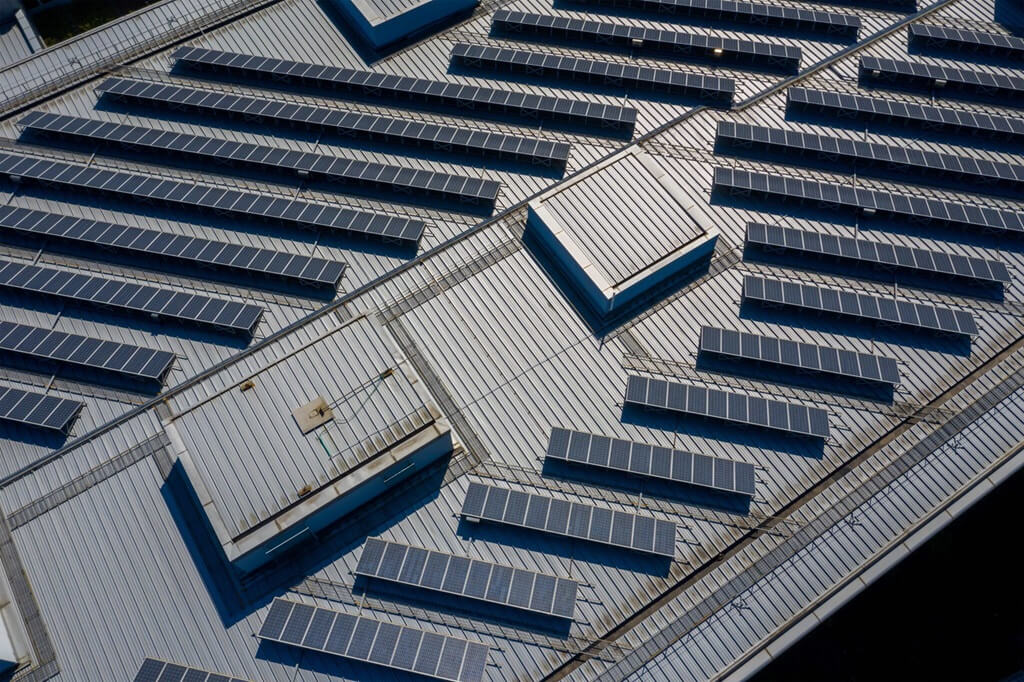
Manufacturing and logistics businesses typically use a lot of electricity and energy to power machinery, provide lighting and heating for their factories and warehouses. Also to ensure that deliveries can be picked and transported. Such high amounts of electricity can result in sky-high fuel bills and rapidly rising overheads. This is where warehouse solar panels can make a huge difference, not just to a company’s sustainability goals, but to its financial bottom line.
Installing warehouse solar panels
One thing that everyone knows about warehouses is that they are very big indeed, with large, flat surfaces in multiple places. This makes the physical buildings ideal locations for installing photovoltaic panels. They can be positioned to capture as much sun as possible. Multiple sets of panels can also be installed on larger rooftops. Warehouses are normally built in industrial areas alongside other commercial premises. So, the aesthetics of warehouse solar panels are not as important as if they were to be installed in a residential our countryside area. Rather, sleek, elegant warehouse solar panels can actively improve the look of a large, flat roof and inspire other organisations in the vicinity to have them installed.
A long-term investment
Commercial projects involving renewable energy work best when there is room in the business plan for long-term investment. Warehouse solar panels will require an initial financial outlay for their purchase and installation. There may also be financial commitments around annual servicing and regular maintenance contracts. The longer that warehouse solar panels can remain in place, generating electricity for immediate use or storage, the more money they can save the company on energy bills, heating and lighting. Surplus electricity can also be sold back to the National Grid, which can help a commercial premises build up even more income over the longer term.
Climate change, sustainability and the journey to net zero
The green agenda is increasingly prominent in business plans and corporate goal setting. Manufacturing and logistics companies can produce far more carbon and use far more energy than other types of enterprise. Therefore, investments in warehouse solar panels will go a long way towards offsetting the carbon produced by fossil fuels and paving the way towards greater renewable energy use. Electricity generated from warehouse solar panels can help these types of companies improve their sustainability figures and move closer to their stated goals around reducing carbon emissions and achieving net zero.
Employee engagement and productive PR
Many companies are using climate change initiatives as a basis for attracting quality employees and raising awareness of their ecological work in press and PR activities. More and more people are choosing obviously green companies to work for. This is because they align with their personal values around sustainability and protecting the planet’s finite resources. Good manufacturing and logistics staff can be hard to find – and even harder to retain due to the competition and high demand out there. Being able to show prospective employees your warehouse solar panels helping to reduce fossil fuel reliance can be a big selling point when it comes to recruitment. Clearly visible warehouse solar panels can also become an excellent selling point in your company’s PR and marketing collateral. They make excellent subjects for promotional photography and the details of how much energy is produced, stored and sold back to the National Grid can strongly support any green agenda publicity.
Future proofing for your warehouse business
Warehouse solar panels need only be the start of a company-wide shift to renewable energy and green electricity generation. Having an effective, efficient solar panel system can inspire other initiatives that will future-proof the company. Lessening reliance on oil, gas and other fossil fuels to run a manufacturing or logistics business can provide stability in times of unstable geopolitics and conflict. The idea can spread out to other aspects of running the business. For example, electric or hybrid vehicles can be used to transport goods and move pallets around the warehouse. Employees can be incentivised to switch to electric vehicles to get them to and from work each day. Electric charging points and bicycle racks can be installed in the car park. These can even be powered by warehouse solar panels to increase synergy between existing green energy commitments and employees’ access to sustainable resources.

